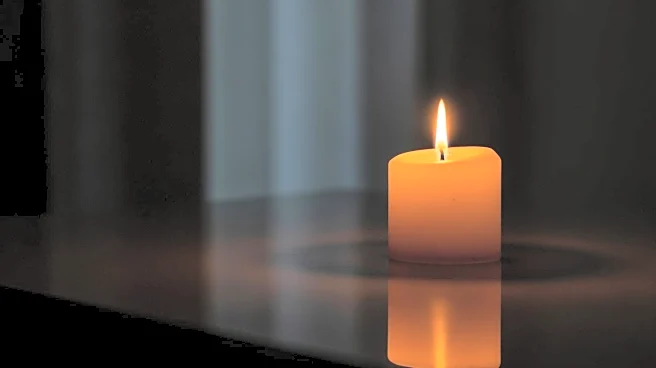What's Happening?
The IDF Widows & Orphans Organization has brought attention to the grief experienced by Israelis following the recent hostage crisis. Rachel Goldberg-Polin, whose son was killed while in Hamas captivity,
spoke at Hostage Square, emphasizing the duality of emotions faced by families—mourning the loss of loved ones while celebrating the return of living hostages. Her remarks, referencing the Book of Kohelet, highlight the complex emotional landscape for those affected by the crisis. The organization aims to provide support and raise awareness about the ongoing struggles of families who have lost members in such tragic circumstances.
Why It's Important?
The focus on grieving families by the IDF Widows & Orphans Organization sheds light on the broader societal impact of the hostage crisis. It underscores the need for comprehensive support systems to address the emotional and psychological needs of those affected by conflict. The organization's efforts highlight the importance of community and institutional support in helping families navigate their grief and rebuild their lives. This initiative may influence public policy and encourage the development of more robust support networks for bereaved families, potentially leading to long-term societal benefits.
Beyond the Headlines
The emphasis on grief and support for bereaved families raises important ethical and cultural considerations. It highlights the need for a compassionate response to loss and the role of community in healing. The organization's work may also prompt discussions about the cultural significance of mourning and remembrance in Israeli society, potentially influencing how future crises are addressed. This focus on empathy and support could lead to a shift in societal attitudes towards grief and loss, fostering a more supportive environment for those affected by tragedy.











